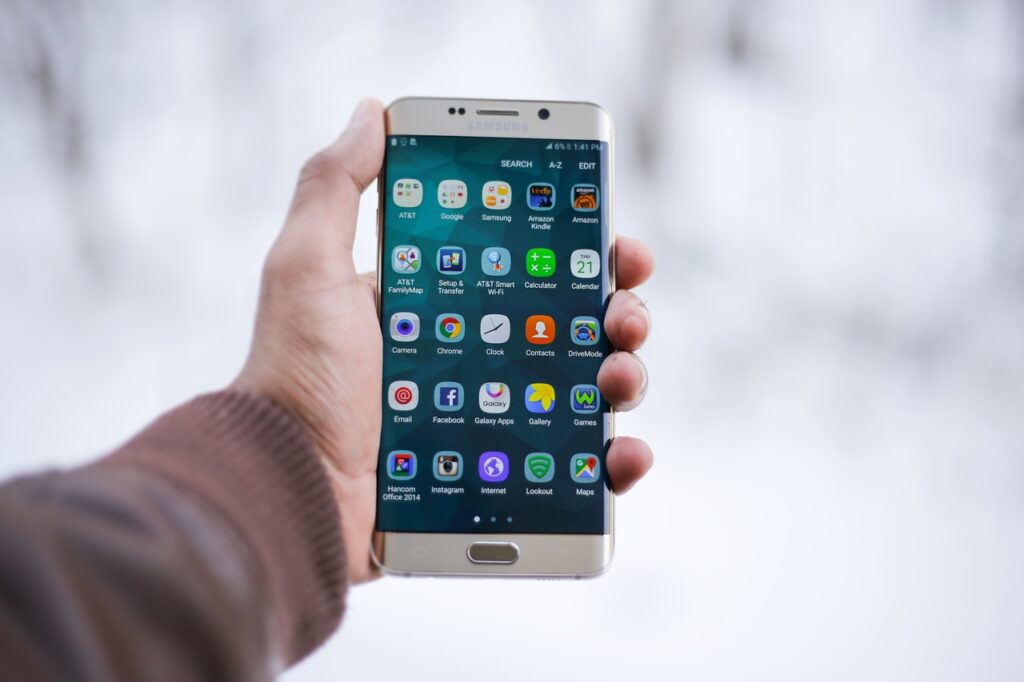In today’s hyper-connected world, your smartphone knows more about you than your closest friends do. From your location and search history to your voice recordings, smartphones constantly collect data. But the big question is: Is your smartphone actually spying on you?

Let’s break it down and see how you can take back control.
Is Your Phone Really Spying on You?
The short answer? Not directly—but apps and services on your phone may be collecting your data in ways that feel like spying.
Here’s how it happens:
1. Microphone Access
Some apps request permission to access your microphone. Ever mentioned a product in conversation and saw an ad for it later? While companies deny “listening,” background data collection is very real.
2. Location Tracking
Even when you’re not using Google Maps or Uber, many apps track your real-time location to build a profile about your habits and preferences.
3. Camera Permissions
Certain apps might use your camera in the background. This is rare—but possible if permissions are granted carelessly.
4. Background Data Collection
Apps often run in the background, silently collecting data like your browsing habits, app usage, and even keystrokes.
Why Are They Collecting Your Data?
Data is the new oil. Companies use your data for:
- Targeted advertising
- Personalizing content
- Selling information to third-party advertisers
- Improving user experience (claimed)
While some of these may sound harmless, unauthorized use of your private information is a serious privacy risk.
How to Stop Your Phone From Spying On You
Want to protect your privacy? Follow these actionable tips:
1. Revoke Unnecessary Permissions
- Go to Settings > Apps > Permissions
- Disable access to your microphone, camera, and location for apps that don’t need it
2. Limit Background Activity
- On Android: Settings > Apps > [Choose App] > Battery > Restrict background activity
- On iOS: Settings > General > Background App Refresh
3. Clear Permissions Regularly
- Android 11+ and iOS automatically reset permissions after inactivity
- Still, manually check permissions every 30–60 days
4. Delete Suspicious Apps
Uninstall apps you don’t use or don’t trust. Many free apps trade privacy for functionality.
5. Turn Off Voice Assistants
- Disable Google Assistant or Siri if you don’t use them
- Go to Settings > Voice Assistant and toggle off hotword detection (like “Hey Google” or “Hey Siri”)
6. Use Privacy-Focused Browsers
Switch to browsers like Brave, DuckDuckGo, or Firefox Focus for safer internet activity.
7. Install Privacy-Protection Apps
Apps like:
- GlassWire: Shows real-time data tracking
- Blokada: Blocks unwanted trackers and ads
- Jumbo: A personal data assistant for privacy management
Are You Being Paranoid?
Not at all. With growing digital surveillance, protecting your data is smart—not paranoid. You don’t have to go offline—just be intentional about how your data is shared.
Final Thoughts
Your smartphone can be an incredibly powerful tool—but it shouldn’t be a window for companies to spy on your every move. By understanding the risks and taking simple actions, you can regain control of your privacy without sacrificing functionality.
Take back your digital freedom—your data belongs to you.
FAQs – Smartphone Privacy & Data Collection
1. Is my phone really listening to my conversations?
While there’s no official proof that your phone constantly listens in, some apps request microphone access and may collect voice data to improve ad targeting. It’s always smart to check which apps have that permission and disable it if unnecessary.
2. How do I check which apps are tracking me?
On Android and iOS, you can go to your phone’s Settings → Privacy → App Permissions. This lets you see which apps are using your location, microphone, camera, and other sensitive data—and you can turn off anything you don’t trust.
3. Can deleting an app stop it from collecting my data?
Yes, uninstalling an app usually ends its ability to track or collect data from your phone. However, some apps may have already stored your data on their servers—so it’s a good idea to clear cache and request data deletion if the option exists.
4. Are free apps more likely to invade my privacy?
Often, yes. Many free apps make money by collecting and selling user data. Always check reviews and privacy policies before downloading. When in doubt, go for trusted apps with transparent data policies.
5. What are some apps that help protect my privacy?
Great tools include:
- Blokada (blocks trackers and ads)
- GlassWire (monitors data usage)
- DuckDuckGo Privacy Browser (protects while you browse)
- Jumbo (manages app privacy settings)
These apps add an extra layer of defense to keep your personal data safe.
The Ultimate List of AI Productivity Tools You Need in 2025
The Best YouTube Niches Nobody is Talking About (2025 Edition)
The Best YouTube Niches Nobody is Talking About (2025 Edition)
Best Free Video Editing Software for YouTube (No Watermark)
Powerful Janitor AI: The Future of Automation and Cleaning
The Revolutionary Role of Robotic Assembly in Modern Manufacturing
Understanding APIs: Complete Guide to How API Work & It’s Applications
